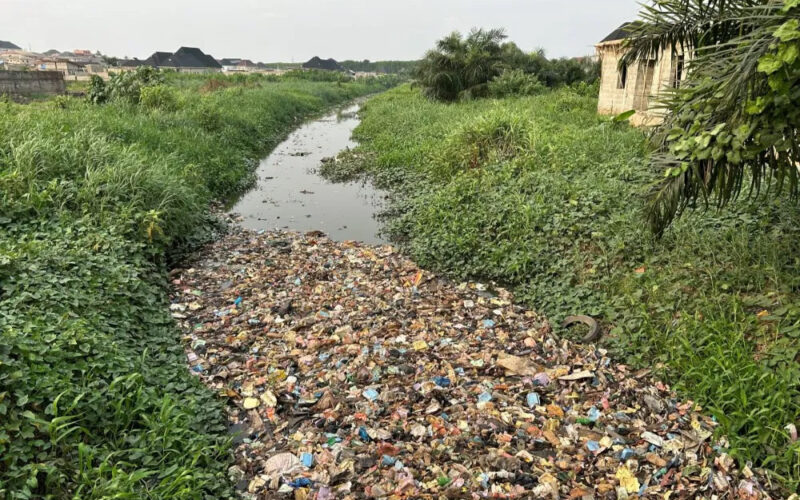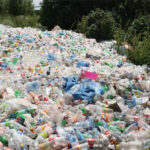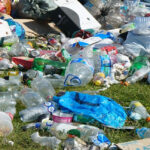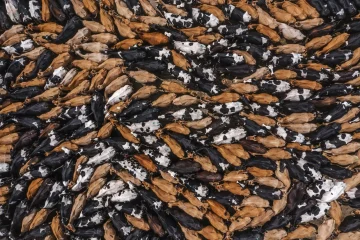WHEN it rains heavily in Lagos, the torrents of water gushing down streets and sidewalks sweep up disposable drink cups, plastic bottles and packaging and dump them into the coastal city’s drains and waterways.
“Most floods in Lagos happen because of blockages of non-biodegradable polystyrene packages and not the volume of rainfall,” said Joshua Babayemi, an environmental toxicologist at the University of Medical Sciences in Ondo, a state in southwestern Nigeria.
But from this week, the tide of trash should at least contain fewer foam food containers as city authorities start enforcing a ban on single-use items that reflects nascent efforts to tackle plastic pollution in the nation of about 200 million people.
Nigeria generates about 2.5 million tonnes of plastic waste every year, and a report by the Heinrich Böll Foundation, a German nonprofit, ranked the nation sixth globally among countries contributing the most mismanaged waste.
Other leading plastic waste polluters include China, India and the Philippines.
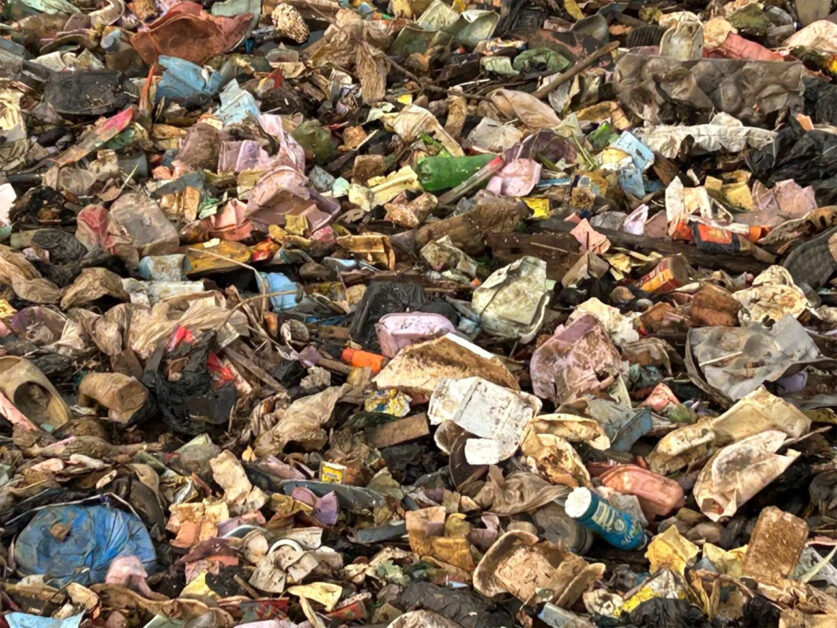
Public health risks
As plastic pollution continues to increase globally, countries are in negotiations to create the world’s first legally binding pact to reduce it by the end of this year.
But with concern growing about the impact of its rubbish-choked canals on public health, Lagos is going it alone.
“When we fly drones on the waterways of Lagos, you see Styrofoam floating across them,” the state environment commissioner Tokunbo Wahab told Context about the ban on the material, which will eventually be extended to other single-use plastic items.
Flooding linked to blocked water channels and drains is of particular concern in the low-lying city of some 24 million people, which is at additional risk as sea levels rise due to climate change.
Clogged drainage systems can lead to pools of stagnant water that become a breeding site for mosquitoes and other insects, increasing the threat from vector-borne disease, Babayemi said, warning of the additional health risks posed by chemicals found in plastics.
Just transition?
Lagos’s ban on foam take-away containers, which gives businesses three weeks to mop up stocks, has prompted similar measures in other parts of Nigeria such as the southeastern manufacturing hub of Abia.
It has also fuelled calls from federal lawmakers for a nationwide ban on single-use plastics.
But while green campaigners have broadly welcomed the push, saying it was long overdue, there is concern that abrupt bans could take a heavy toll on factory workers in the plastic industry, food vendors and small-scale restaurant businesses.
“Investing in toxic plastics is no longer an option but people need to keep their jobs,” said Leslie Adogame, whose environmental nonprofit helped draw up a federal plastics phase-out plan alongside the Nigerian government, the European Union, the U.N. Industrial Development Organization (UNIDO).
The plan, which also drew on input from food and beverage producers and informal waste pickers, envisions eliminating single-use plastics by 2028 and setting recycling targets for all plastic packaging by 2030.
Abrupt bans in different parts of the country risk upending the federal strategy’s effort to foster a “just transition” to alternatives such as paper bags, boxes and wooden single-use cutlery without hurting informal workers, Adogame said.
“A plan allows (affected workers) to go into green production opportunities and green jobs,” said Adogame, executive director at Sustainable Research and Action for Environmental Development.
A more gradual approach, involving public awareness campaigns, would also reduce demand for single-use plastics by changing consumer habits, he said.
In the vast country, an additional risk of isolated bans is that plastics suppliers simply take their prohibited goods to sell elsewhere, said Babatunde Ajayi, head of the Lagos Environmental Protection Agency.
“A single tree does not a forest make … other cities must join us in protecting the environment to make Nigeria a better place,” Ajayi said.
- Context is powered by the Thomson Reuters Foundation Newsroom

